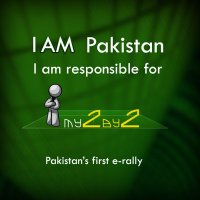
RIP, Goatie.
When I was 11 years old, my family moved to Islamabad, Pakistan from Dhaka, Bangladesh. As a child in the noisy and buzzing city of Dhaka, I had seen my share of hanging meat and animal blood in the marketplaces. I still have a vivid memory of a chicken running around with its head cut off as our cook wielded a butcher’s knife in the patch of grass behind the kitchen. That was very frightening. It wasn’t until I moved to Pakistan though that I met my first goat.
I should mention here that my friends have dubbed me Elmira from Tiny Toons, due to my borderline obsession with all things furry and cute, and my desire to unabashedly “hug ’em and squeeze ’em.” When I was 11, a spray painted goat arrived at our house. He was a pretty goat with a fabulous coat, spray-painted with neon pink and orange swirls. He bleated pathetically in my direction as I ran breathlessly up to him.
We became friends. It may have been one-sided. I called him Goatie.
I wasn’t very creative.
Needless to say, Eid ul-Azha came soon after, and our family feasted on a meal of biryani with gosht. It wasn’t until later, upon learning of Goatie’s mysterious disappearance, that I put two and two together – I had eaten Goatie.
Apparently, I wasn’t very smart either.
I relate that story, dear readers, because it’s Eid ul-Azha today (or tomorrow for others) – otherwise known as Bakra Eid, the religious holiday where we sacrifice a goat to commemorate the story of Abraham and Ismail. It symbolizes a test of faith and a time when we share with others less fortunate than us, Muslims and non-Muslims alike. In Pakistan, Eid is a wonderful flurry of sights and sounds – bangles clinking, lights strewn everywhere, colorful new clothes, and children laughing with their pockets fat with Eidi.
It is a time for family and celebration, but it’s also a time for reflection, particularly for the millions of families who are still without their homes in Pakistan because of the recent flood disaster. Eid for them won’t be a cheery holiday of new clothes and colors, but a painful reminder of all that they lost in the tragedy. Even if their stories have been muted from the news headlines, we should remember them in our prayers on this day, and we should give what we can to ensure their recovery. You can give to your relief organization of choice, or please give to our flood relief campaign Relief4Pakistan, which launched its second phase last week. It is an innovative recovery program developed in partnership with international relief agency Operation USA to restore the livelihood of families living in Bangla Ichha Union Council, a cluster of four villages in Rajanpur, Punjab not receiving sufficient aid and support from the government. We are working closely with the local community organization and tribal leadership to ensure the sustainable recovery of this community through local investment and engagement. To learn more, click here.
Eid Mubarak, everyone!






 So I’m happy and humbled to report that
So I’m happy and humbled to report that  My cousin in Karachi referred me to I am Pakistan – an online movement that is on the verge of becoming an Internet sensation. Initiated by television journalist Faisal Qureshi, the country’s first e-rally urges Pakistanis around the world to
My cousin in Karachi referred me to I am Pakistan – an online movement that is on the verge of becoming an Internet sensation. Initiated by television journalist Faisal Qureshi, the country’s first e-rally urges Pakistanis around the world to 

